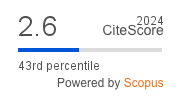Learning and adaptation of strategies in automated negotiations between context-aware agents
DOI:
https://doi.org/10.4114/intartif.vol27iss73pp159-162Keywords:
Automated Negotiation, Multi-Agent Systems, Context-Awareness, Artificial Theory of Mind, Peer-to-Peer MarketsAbstract
This work presents the hypothesis that guided the research efforts and a summary of the contributions of the doctoral thesis '`Aprendizaje y adaptación de estrategias para negociación automatizada entre agentes conscientes del contexto'. Succinctly, the thesis focuses on agents for automated bilateral negotiations that make use of the context as a key source of information to learn and adapt negotiation strategies in two levels of temporal abstraction. At the highest level, agents employ reinforcement learning to select strategies according to contextual circumstances. At the lowest level, agents use Gaussian Processes and artificial Theory of Mind to model their opponents and adapt their strategies. Agents are then tested in two Peer-to-Peer markets comprising an Eco-Industrial Park and a Smart Grid. The results highlight the significance for the automation of bilateral negotiations of incorporating the context as an informative source.
Downloads
Metrics
Downloads
Published
How to Cite
Issue
Section
License
Copyright (c) 2024 Iberamia & The Authors

This work is licensed under a Creative Commons Attribution-NonCommercial 4.0 International License.
Open Access publishing.
Lic. under Creative Commons CC-BY-NC
Inteligencia Artificial (Ed. IBERAMIA)
ISSN: 1988-3064 (on line).
(C) IBERAMIA & The Authors









